So, I promised a final post on this blog before I send in my letter of resignation as a member of the General Synod. In preparation for this I looked back to the first post I put on this blog as I couldn’t really member why I had begun posting something, what prompted me to do it in the first place. So, there have been 155 posts – this will be the 156th – and if you have read them all, thank you. The first was posted on 5 July 2013. I was just arriving in York, the sun was shining and I was feeling a little bit nervous. The previous November there had been a special meeting of the Synod at which the legislation to make possible the ordination of women to the episcopate had been defeated. The houses of bishops and clergy had voted in favour but it was lost in the House of Laity. Ironically my post included a photo of Rosemarie Mallett and Alan Moses arriving to look after one of the ‘inclusive’ stalls in the marketplace! Rosemarie is now Bishop Rosemarie and we are blessed by her ministry as Bishop of Croydon.
I suppose my inention in keeping a blog going was to share something of what we were doing and how things were feeling because many of us were feeling very anxious.
Feeling anxious has, I suppose, been a feature of my eighteen years on the General Synod. I decided to stand because Erica Woof, who was then working for Inclusive Church, came along to our clergy meeting to challenge us about why none of us, apart from Colin Slee, was on the Synod. The decision of my colleagues was that I should stand. Erica is now Vicar of Stockwell and it was thanks to her that I stood in the first place. I was nominated by Canon Richard Truss – Liz’s uncle – on a kind of ‘liberal catholic’ ticket and as the Rector of St John’s Waterloo, that well know bastion of liberal theology, he was happy to support me. The anxiety though, then and now, has always been around things being on a constant knife-edge. Will this, that or the other get through, or will we be able to defeat this, that or the other? The really important areas of our life – worship, ministry, ethics – are always hotly contested and that is where the costs as well as the benefit of being a ‘broad church’ becomes very apparent.
Jesus gives a word of encouragement to his disciples. They were anxious about what they had to do and about the persecution that they might face. Jesus says
‘Do not worry about how you are to speak or what you are to say; for what you are to say will be given to you at that time.’ (Matthew 10.19)
I suppose one of the problems with General Synod – and I don’t know how you possibly solve this – is the adversarial nature of the whole thing. We might sit in a semi circle of kinds in both Westminster and York, rather than facing off one another across the lines drawn into the carpet of the House of Commons, but the ‘two sides’ still dominates much of what is done and said, the for and against, the right and wrong that flows out of our traditions and complex history. We may be encouraged to speak well of each other, we may wish to disagree well, but we don’t seem to be able to achieve it.
Nevertheless, I have loved General Synod. There is a sense, and I suppose this is where the passion on all sides emanates from, that the things that we are debating, deciding, dividing on, really matter. We are able to give direction to things, to aid the mission and ministry into which God calls us. Being part of the Synod that finally voted for women to be admitted to all three orders of ministry, to be part of a Synod that has finally allowed some kind of blessing to offered to people in same-sex relationships has been a privilege.
I want to pay tribute to a couple of groups of people. The first are those who assiduously read all the papers, who put in Questions, Requests to Speak, amendments, who go along to the meetings of Revision Committees. In each of the quinquennia in which I have been on Synod there have been a group of people who fall into this category. They want to speak in every debate, they have always got their name somewhere or other on an Order Paper. At many times they are so annoying but actually, when I stop and think about it, Synod would not function properly with out them. Synod is a legislative body and part of that, a big part of it is scrutiny. One of my biggest regrets is not properly engaging with the proposals around the Clergy Discipline Measure. We know that it is not fit for purpose, that it shouldn’t have been passed, that it has done more damage than good. I blame myself – I should have taken better notice rather than imagine that some how it was all going to be ok. So for all those people who annoy the hell out of the Chairs of the Synod, proposers of motions, architects of Measures, and the rest of the membership of the General Synod, thank you.
My other thanks are for the huge team backstage, usually literally. The Synod Support Team and the Legal Department come in for a lot of criticism, sometimes they deserve it, most often they don’t. Having the opportunity to be at one stage Chaplain to the Synod and latterly one of the Panel of Chairs has given me access to all areas and an opportunity to get to know those who seek to manage the Synod and provide what is needed by its members. I have found such support in that back room, such encouragement, and such commitment to the church from people who get to view something of the dark underbelly of the institution. Again, thank you.
So, I will write my letter and hang up my Synod pass and bring this blog to a close. But I do so with much to be thankful for and much to have pride in. We are fortunate that we are a church where voices can be heard – the voices of the laity, of the clergy and the bishops in the same forum; a church in which that sometimes unholy trinity has to agree; a church that seeks to hear what the Spirit is saying, that will sometimes get it very wrong, but often get it very right. And if ever you find yourself thinking, ‘Shall I stand for General Synod?’, don’t dismiss the thought too quickly. You might actually love it as much as I have done.
I’ll conclude with that favourite prayer of mine by Dag Hammarskjold.
For all that has been, thanks. For all that will be, yes. Amen.


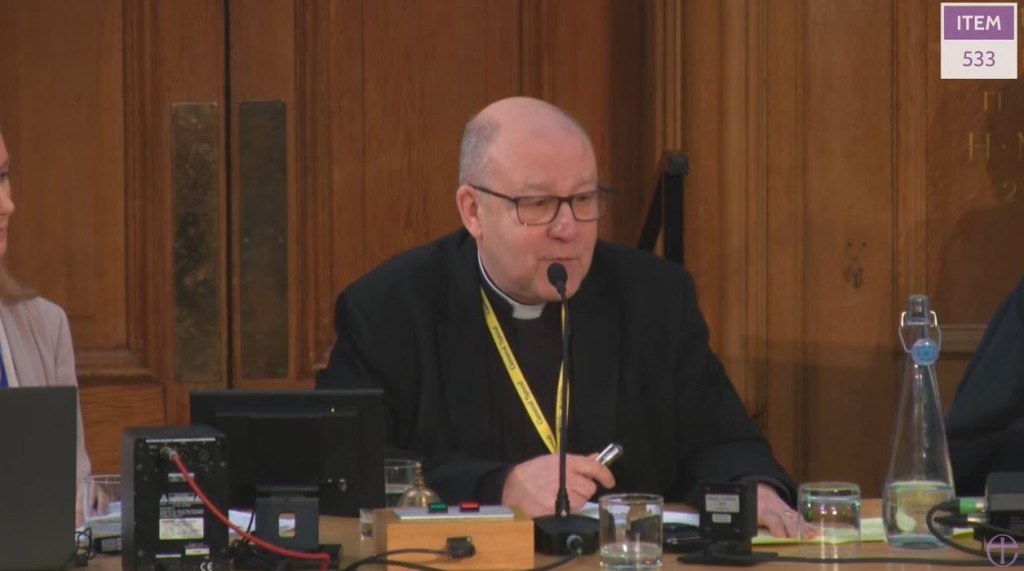
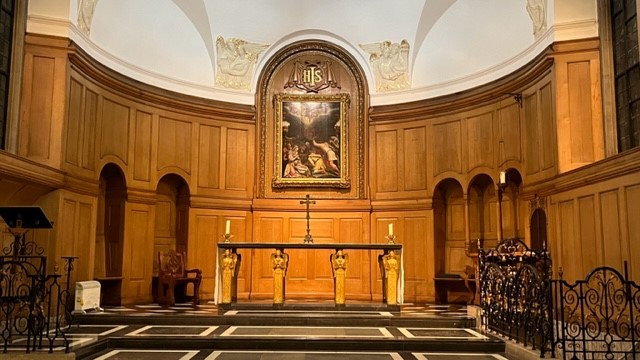
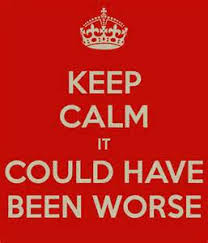

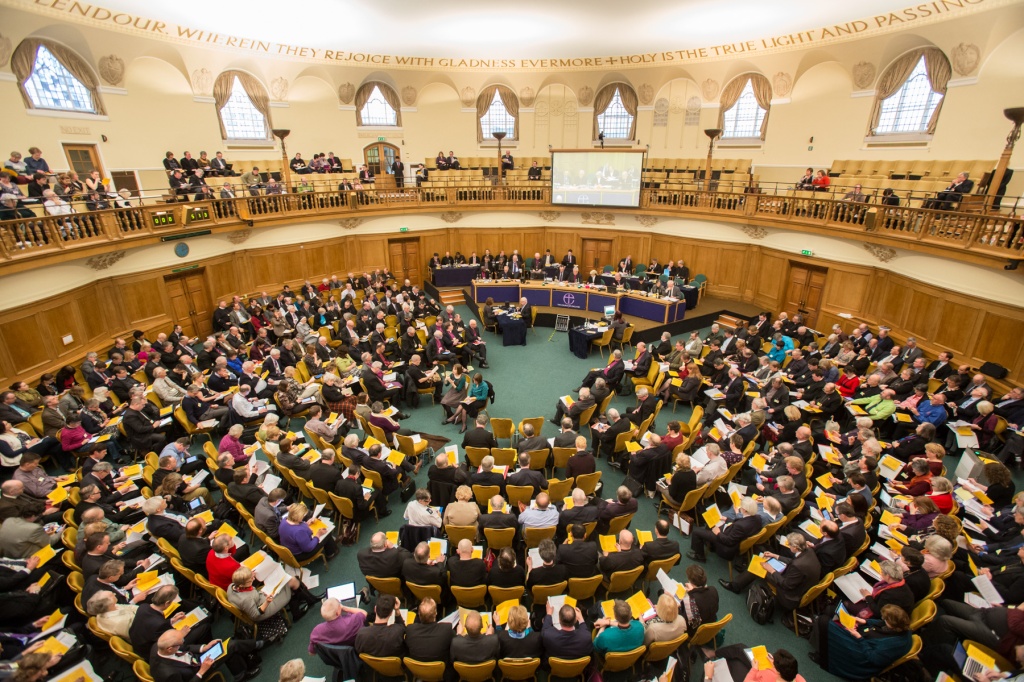


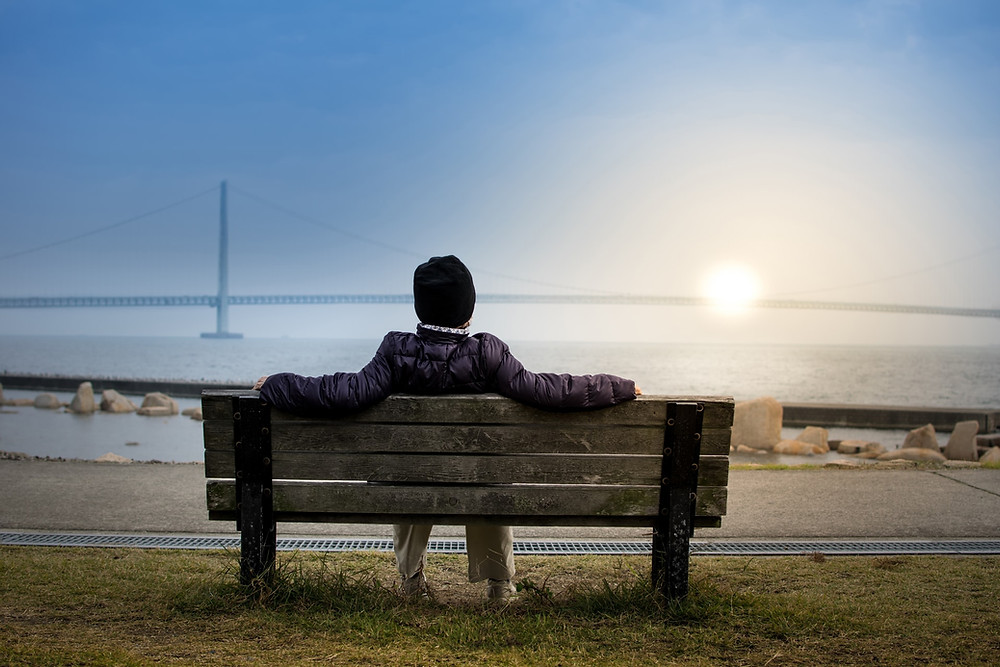
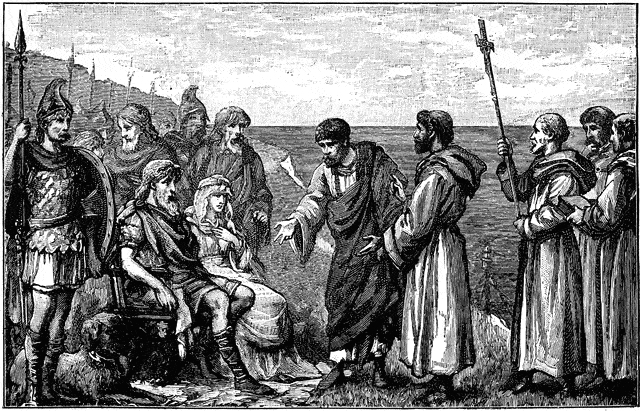
You must be logged in to post a comment.